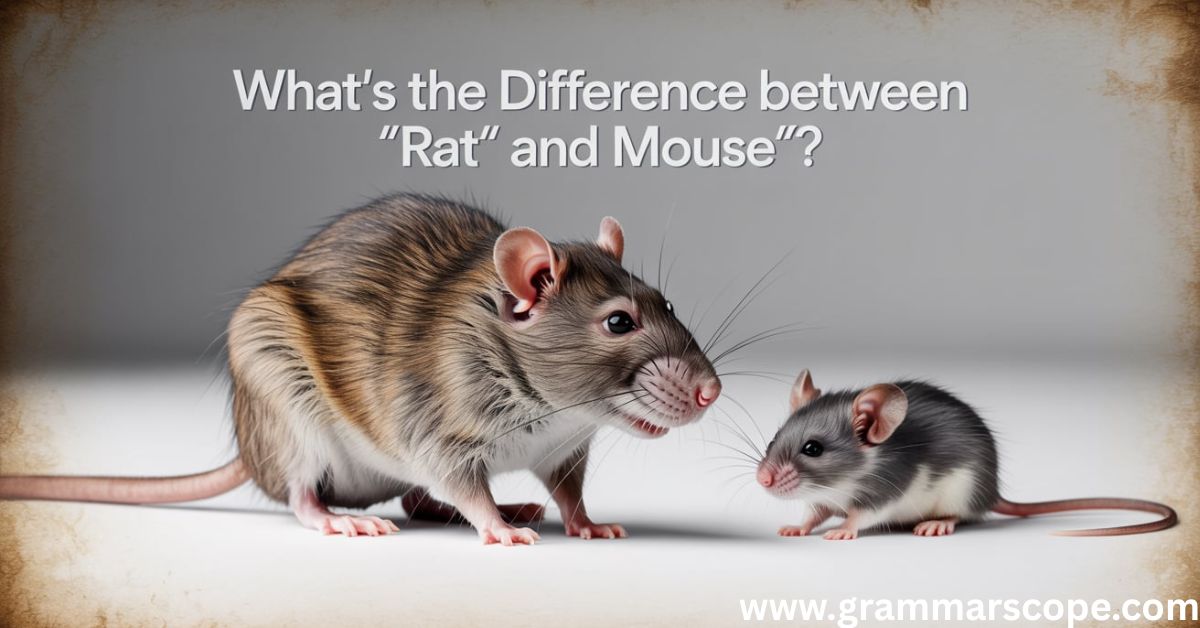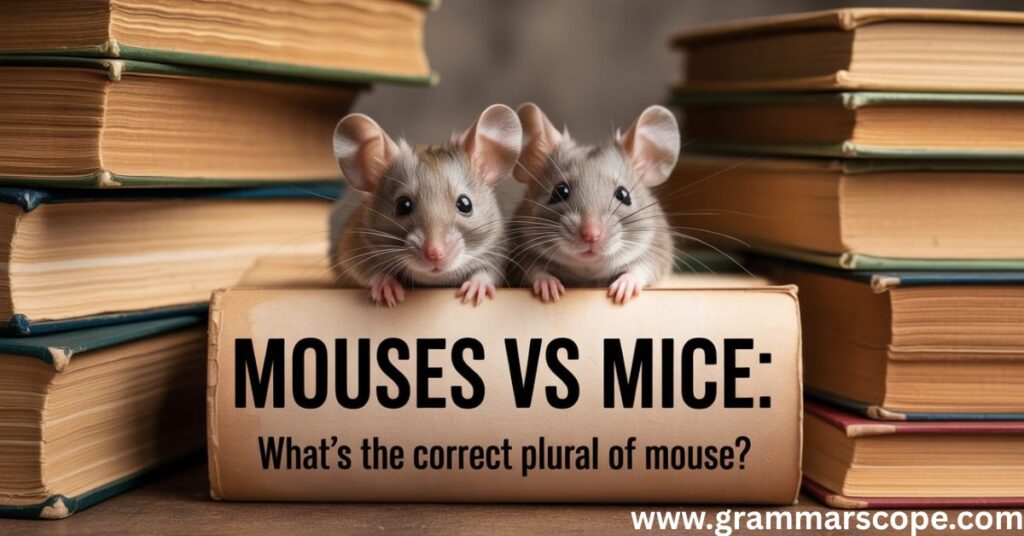Mice vs mice might sound like the setup to a grammar joke, but it’s a real question that stumps English learners, tech users, and even native speakers. The confusion often arises from the unusual situation where one noun has two different plural forms, each accepted in different contexts. Whether you’re talking about small rodents or your office’s computer accessories, the answer depends on more than just grammar.
Let’s imagine you’re sending a tech support email. Would you say, “Please bring extra mice to the meeting room”? That sounds like a rodent infestation! In this modern tech-savvy world, such ambiguities can cause more confusion than clarity. On the other hand, using “mouses” can seem grammatically suspicious—unless you know the rules.
In this article, we’ll break down the origins, correct usage, and nuances of “mouse,” “mice,” and “mouses” to help you make the best choice in every scenario. You’ll also find real-world examples, helpful tables, and keyword-rich insights including comparisons like mouse ka plural, difference between mice and mouse, and other common searches. Let’s demystify this plural puzzle!
What Does the Word “Mouse” Mean?
The word mouse can refer to either a small rodent or a handheld input device used with computers. The former is one of the most commonly recognized mammals in the animal kingdom, while the latter has become essential in modern-day computing. This dual meaning is at the root of the confusion about plural forms.
What’s the Difference Between “Rat” and “Mouse”?

While we’re on definitions, let’s briefly distinguish between a rat and a mouse. Both are rodents, but mice are smaller, generally weighing less than 30 grams, with long tails and pointed noses. Rats, in contrast, are bulkier with shorter, thicker tails. This biological distinction doesn’t affect the plural form of “mouse,” but it does help prevent confusion in common usage.
Plural of “Mouse”
When referring to the animal, the correct plural is always mice.
Example:
- I saw two mice in the kitchen last night.
This follows an irregular plural pattern in English, where the vowel in the word changes rather than simply adding -s or -es. Like goose → geese, or man → men, this pattern has roots in Old English origin and remains standard in modern grammar.
Which One Should Be Used: “Mouses” or “Mice”?
The answer depends on what kind of mouse you’re talking about.
For rodents:
Always use mice.
For computer devices:
Both mice and mouses are used, but the choice depends on the technical context, clarity, and audience.
- “Computer mice” is the more common usage in general conversation and consumer writing.
- “Computer mice” is sometimes used in technical documentation, IT departments, or e-commerce listings to avoid confusion with rodents.
Origins of the Word “Mouse”

The word “mouse” comes from the Old English word mūs (plural mūys), which traces back to Proto-Germanic and Proto-Indo-European roots. The vowel change pluralization (mouse → mice) is part of an older system of forming plurals that predates modern English rules.
In computing, the term was coined in the 1960s when engineers thought the early device resembled a rodent due to its tail-like cord. Initially, there was no standard plural form, and the debate has continued ever since.
Using “Mouse,” “Mice,” and “Mouses” in Sentences
Mouse:
- This mouse is chewing through the cereal box.
- I bought a new mouse for my laptop.
Mice:
- We found several mice nesting behind the fridge.
- The office is ordering ten new computer mice.
Mouses:
- Please restock the shelf with mice for the sales team.
- Our inventory lists three brands of wireless mice.
Scenario-Based Examples
Email Example 1: Referring to Rodents
Subject: Pest Issue in Storage Room
Hi Alex,
We noticed a couple of mice running around near the storage shelves. Can you please contact pest control?
Thanks,
Jordan
Email Example 2: Referring to Computer Devices
Subject: Equipment Order Request
Hi Brian,
The design team needs five new wireless mouses for their desktops. Please add this to the next supply order.
Regards,
Lisa
Keyword Spotlight: Mouse Ka Plural, Mouse Ka Plural Form
If you’re searching online using terms like mouse ka plural or mouse ka plural form, you’re likely looking for clarity between these two terms:
- Mouse (rodent) → Mice
- Mouse (computer) → Mice or Mouses (depending on clarity)
This difference also addresses the question, “mouse and mice difference”, which ultimately depends on the context: biological or technological.
Language Style Guides: What Do They Say?

Merriam-Webster:
- Lists both mice and mice as plural options for computer devices.
Chicago Manual of Style:
- Recommends mice but acknowledges “mouses” in specific technical contexts.
AP Stylebook:
- Supports traditional usage but allows exceptions when necessary for clarity.
These guides support the idea that modern English plural rules aren’t always black and white.
Quick Comparison Between Mice and Mouses
| Term | Usage | Context | Example |
|---|---|---|---|
| Mice | Correct | Animals & Computers | “I bought two wireless mice.” |
| Mouses | Informal/Acceptable | Computers (IT/Business) | “We need three Logitech mouses.” |
| Mouse | Singular | Both contexts | “The mouse isn’t working.” |
Conclusion
So, what’s the correct plural of mouse? It depends.
- Use mice for animals.
- Use mice for computers in general use.
- Use mouses in technical or business-specific settings where clarity is more important than traditional grammar.
Understanding the difference between mice and mouse is all about contextual grammar, modern usage, and audience expectation. Whether you’re talking about a rodent or a gadget, now you know the correct plural form and how to use it like a pro.
Need more help with confusing plurals or English usage? Keep exploring our guides—we’re here to make grammar smarter and simpler.

Emma Olivia is an experienced blogger and the creative mind behind Grammar Scope. With a passion for language and years of writing expertise, she crafts engaging, informative content that simplifies grammar and writing tips for readers worldwide. Emma’s dedication to clear communication and love for the written word shine through every article she publishes, making Grammar Scope a trusted resource for language enthusiasts and learners alike.







